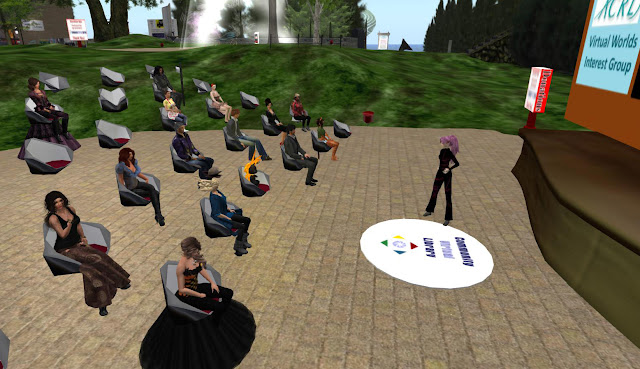ACRL-VWIG & ALA Virtual Communities in Libraries Program
October 15, 2017 12PM SLT
at the CVL Auditorium in Second Life
October 15, 2017 12PM SLT
at the CVL Auditorium in Second Life
"Genealogy in Virtual Worlds"
presented by: Kilandra Yeuxdoux
At this month's meeting Kilandra Yeuxdoux, a librarian and genealogist did a presentation on using Virtual Worlds for genealogy research. Kilindra pointed out that many organizations in virtual worlds currently
operate by setting up website launchers. These sites allow people to
do genealogy research independently by logging into specific collections. These sites work like more traditional genealogical sites such as Ancestry.com. People create accounts and then login to the collection/douments available there and proceed to do
their own research. Organizations such as Just Genealogy, The Humanity
Biblioteca-Afterchills were two examples of places that use this research model. Genealogy
research requires access to information/documentation that is place
bound and found only at a particular library or institution which may not be easily
accessible to the researcher. This is one of the aspects of genealogy research that makes it so time consuming and labor intensive.
 |
| Kilandra Yeuxdoux |
Kilandra, who's been a Second Life user since 2006, proposed that one of the best things virtual worlds offer to genealogists is the ability to meet and work with people who may live in an area you are researching or who are physically close to, or have access to collections you need for doing your research. She called this research model "Collaboration Research". This model of doing research collaboratively came out of medical school curriculum development.
While commercial services such as Ancestry.com already function as places researchers can go to access actual data, Kilindra suggests that Virtual worlds, specifically Second Life, are great places for researchers to meet and share information. She posited that this role may wind up being more important for researchers. She encouraged researchers using Second Life and other virtual worlds to strive to create an information commons for other researchers who are developing or bringing information to an informal conversation.


